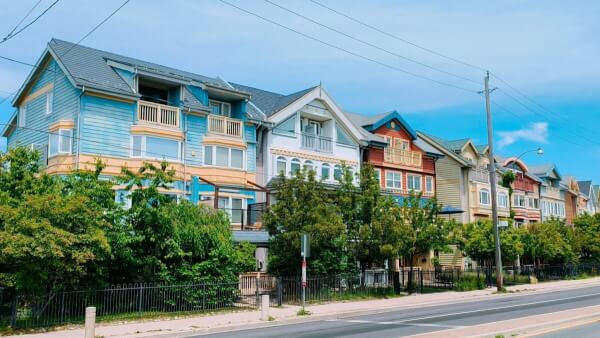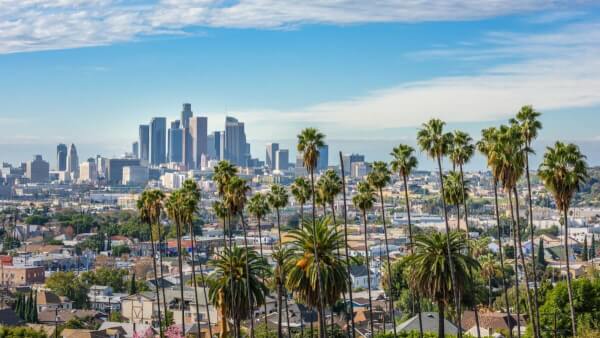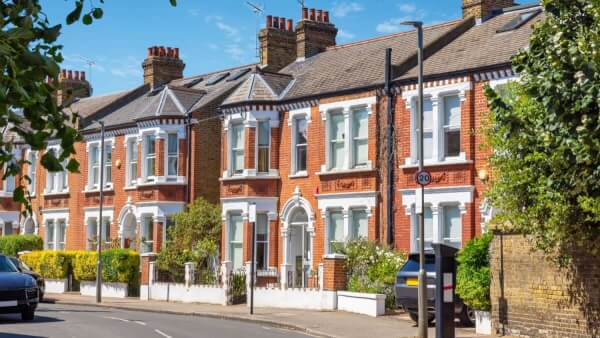Buying property in Indonesia as a foreigner
Read our comprehensive UK guide to buying property in Indonesia as a foreigner, including average prices, fees, taxes and where to start house hunting.

There’s plenty about Malaysia to recommend it to foreigners looking to move or invest in property. The climate, culture and friendly people go a long way - and with Kuala Lumpur transforming itself into a global hub for startup businesses it’s becoming attractive to young professionals as well as the more traditional expat community of retirees.
The capital of Malaysia, Kuala Lumpur, is also the largest city in the country, by a long way. With nearly 1.5 million inhabitants, it’s more than double the size of the second largest, George Town. George Town, however, boasts a colonial old town which is UNESCO listed, and is frequently dubbed the best place to choose if you want to retire in Malaysia. Located between these two, near the Cameron Highlands, you’ll find the third largest city in the country - Ipoh. The tourist industry here is booming after Lonely Planet featured Ipoh as one of Asia’s top destinations, making it a great place to visit or settle for the longer term.
Housing costs in Malaysia dropped in certain (especially luxury) categories during the global financial crisis, but have bounced back and growth over the past few years has been strong. That said, the market appears to be stabilizing more recently.
If you’re thinking of settling in Malaysia, then you’ll need to know a bit about how the process of buying a home in Malaysia as an expat will work. Here’s a quick guide.
Since 2009, the Malaysian property market has been booming. However, towards the end of 2016, it appeared that the steep rise in prices was slowing. The final quarter of 2016 saw prices rising 5.36% year on year (3.81% inflation-adjusted), compared to 7.35% year on year (4.61% inflation-adjusted) a year earlier.
Average house prices in Malaysia are enormously varied based on location. Unsurprisingly, the most expensive housing in Malaysia, on average, is to be found in the capital city, Kuala Lumpur. Average house prices here at around MYR 772,126 (US$ 173,902), are over double the national level. However, the prices of housing here haven’t been rising as quickly as in some other states over the past year.
It’s common to buy homes in Malaysia, rather than rent. Property purchase fees are fairly low and the government encourages young people in particular to buy, with low cost loans available. However, the process of buying a property takes some time, which means that some people still prefer to rent as a quicker route to getting their housing sorted.
Because the debate about whether renting or buying is best is raging on, there are lots of tools to help you figure out your own opinion. HSBC Malaysia for example, offers a rent versus buy calculator to help people work out whether renting or buying is the best option for them given the specific circumstances.
Foreigners wishing to buy property in Malaysia, can do so, as long as the property price is higher than a threshold set by each state. The exact number varies by area, but is between MYR 1 million (approximately $235,000) and MYR 2 million depending on the state. Some states have also implemented controls on the type of property that foreigners can buy, for example, specifying that foreign owned homes must be in gated communities.
It’s worth knowing, though, that foreign investment in Malaysian property is being scrutinised at present, with some areas still planning to raise the minimum investment levels significantly. Ask your lawyer to help you understand the minimum requirements in the area you’re hoping to move to.
If you’re thinking of buying a property in Malaysia, the price you pay will be influenced significantly by where you want to live. There’s a significant difference in average prices between the two largest cities, as the table below shows.
Interestingly, there’s relatively little difference in average prices in George Town between the city centre and suburbs. As a much smaller city, with many desirable areas, the value of housing is more constant than in the much larger capital. Naturally, the more off the beaten path you get in general, the lower average prices will become.
| City | Price per Square Metre to buy (USD, City Centre) | Price per Square Metre to buy (USD, Outside of City Centre) |
|---|---|---|
| Kuala Lumpur | $2.593 | $1,342 |
| George Town | $1,547 | $1,116 |
There are several avenues you can take to find a property in Malaysia:
The estate agent fees are likely to be between 2 and 3% of the price of the property. These can be paid by the seller, or split between the buyer and the seller, depending on what agreement you strike with the individual seller.
If it’s the first time you’ve bought a property in Malaysia, then a specialist agent might offer helpful advice and insight into the local market. However, there will be a fee to pay for this service, and you should make sure you’re clear on what you’ll get for your money, as both the packages and prices vary wildly.
Try to find a realtor registered with The Malaysian Institute of Estate Agents. Choosing an agent who holds this membership should make sure you don’t fall foul of any scammers. The Malaysian government also offers a helpful FAQ to help you identify brokers that are property registered and legally allowed to practise. It’s well worth checking this out to avoid scams and pitfalls, as all agents and negotiators ought to carry this ID to be able to legally work in the industry.
The best way to get a head start on finding a place to buy in Malaysia is to look online. Great websites to find a house or apartment to buy include:
Malaysia has a well developed real estate sector. This means you'll have a wide choice of apartments, houses or even land if you want to build your dream home yourself. It’s a good idea to familiarise yourself with some of the quirks of language used when talking about real estate in Malaysia. For example:
Naturally, you'll find more condos and flats available in built up areas and cities, with houses and villas more readily available in newer developments in the suburbs, and in towns and villages.
It’s a smart idea to get a survey done on any property you choose, before you commit to buying it. Even though not required by law, your mortgage provider will probably insist on having a survey completed before confirming the mortgage offered to you. Find a registered surveyor online, or ask for recommendations from local connections.
The government of Malaysia offers lots of useful information about home ownership in Malaysia in general, which is worth a look before you commit.
Malaysian property law has its roots in the United Kingdom legal system, with the system of property registration taken from a similar process used in Australia and New Zealand. This means the process feels rather familiar, and is fairly well regulated. Buying a property in Malaysia is therefore not too dissimilar to buying a home elsewhere in Europe or North America. You’ll need to:
Hiring a good and trustworthy lawyer to help you with your purchase is essential, as the rules for foreigners buying property in Malaysia vary between areas, and are being reviewed and altered regularly. Some categories of property can not be bought by foreigners, so you’ll need a specialist to help you understand what’s open to you.
In most cases, to buy a home in Malaysia you’ll have to either have the full amount upfront in savings, which you can transfer to MYR to make your purchase, or you’ll need to take a mortgage through a Malaysian bank.
However, Malaysia has a developed banking sector and you have a good choice of local and global banking brands to choose from when it comes to arranging a mortgage. The four largest banks in Malaysia are Maybank, CIMB, Public Bank Berhad and RHB. All offer mortgage products, although it’s worth checking the small print as each product will differ slightly from the next.
Alternatively, your home bank may have a presence in Malaysia. Foreign banks with branches or services offered in Malaysia include HSBC, Deutsche Bank and Bank of America. You can learn more about banks and money in Malaysia with this helpful guide.
When you have chosen the mortgage product that works best for you, you’ll need to make your application. Typically this will mean that you have to arrange a stack of paperwork, and visit the bank in person to get approval. Each bank will operate slightly different, so call your local branch to check if you need to make an appointment in advance. You should also check if there’s an English speaking staff member who can help you, as this isn’t always the case.
It’s worth getting a mortgage agreement in principle before you go on too far with your property search, as this will give you a more solid idea of what you can afford.
A deposit payment in Malaysia is typically around 10%. However, this is split into a couple of separate installments. First you’ll have the ‘Letter of Offer/Acceptance’, which is signed by both parties, and a 2-3% deposit has to be handed over by the buyer. You’ve then got 14 days to sign the Sale and Purchase Agreement. At this stage, the buyer must pay the remaining 7-8% deposit. After this deposit is paid, you’ve got a maximum of three months to complete the transaction and pay the rest of the cost of the property.
If you’re not yet in Malaysia, you might have to pay your deposit from abroad. This might mean making an international money transfer to cover the deposit amount. If you’re transferring a large amount of money across currencies, it’s important you get the best deal available. One smart option is to get a Borderless account from Wise. With this, you can hold 15 different currencies all in one account (including GBP, USD and EUR). It’s like having a local bank account which you can use to pay like a local, wherever you need it. And if you need to, you only pay a small flat charge to transfer cash from one currency to another, and you’ll always get the real exchange rate applied.
The transaction costs for buying a property in Malaysia are relatively low compared to many European countries. Most charges are regulated and based on the cost of the property being sold. Once you add up all of the fees you’ll have to pay as a buyer, you can expect to add around 4% of the property price onto your bill. Fees and taxes include:
Buying a property is a big and exciting step, but navigating the system in a new country can be a challenge. Luckily, buying your dream home in Malaysia should be fairly straight forward if you follow these steps, and source the right local help if you need it.
Good luck with finding, buying and settling into your new home in Malaysia.
*Please see terms of use and product availability for your region or visit Wise fees and pricing for the most up to date pricing and fee information.
This publication is provided for general information purposes and does not constitute legal, tax or other professional advice from Wise Payments Limited or its subsidiaries and its affiliates, and it is not intended as a substitute for obtaining advice from a financial advisor or any other professional.
We make no representations, warranties or guarantees, whether expressed or implied, that the content in the publication is accurate, complete or up to date.

Read our comprehensive UK guide to buying property in Indonesia as a foreigner, including average prices, fees, taxes and where to start house hunting.

Read our comprehensive UK guide to buying property in Canada as a foreigner, including average prices, fees, taxes and where to start house hunting.

Read our comprehensive guide to selling property in the US, including fees, taxes, timescales and a step-by-step guide to the process.

Read our comprehensive guide for non-residents selling UK property, including fees, taxes and timescales.

Read our comprehensive guide to selling property in Australia, including fees, taxes, timescales and a step-by-step guide to the process.

Read our comprehensive guide to selling property in Malta, including fees, taxes, timescales and a step-by-step guide to the process.